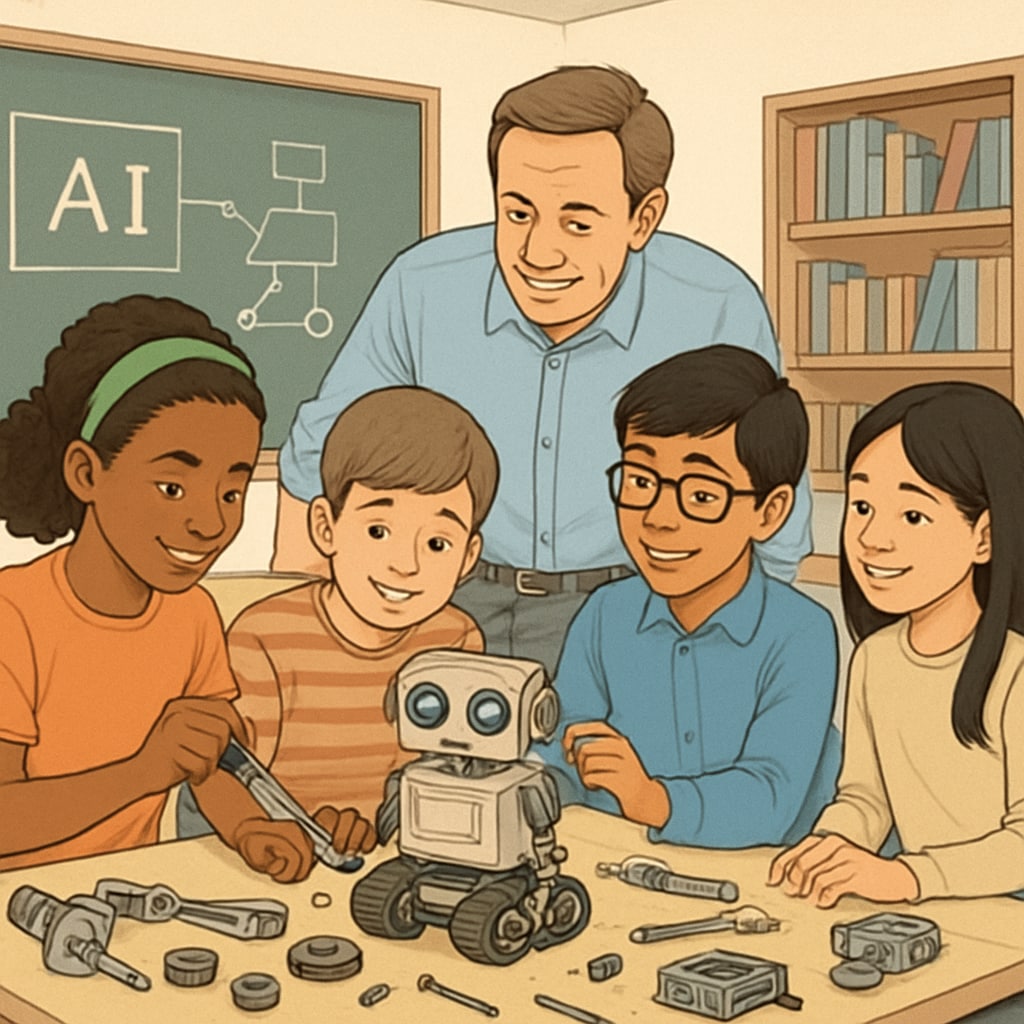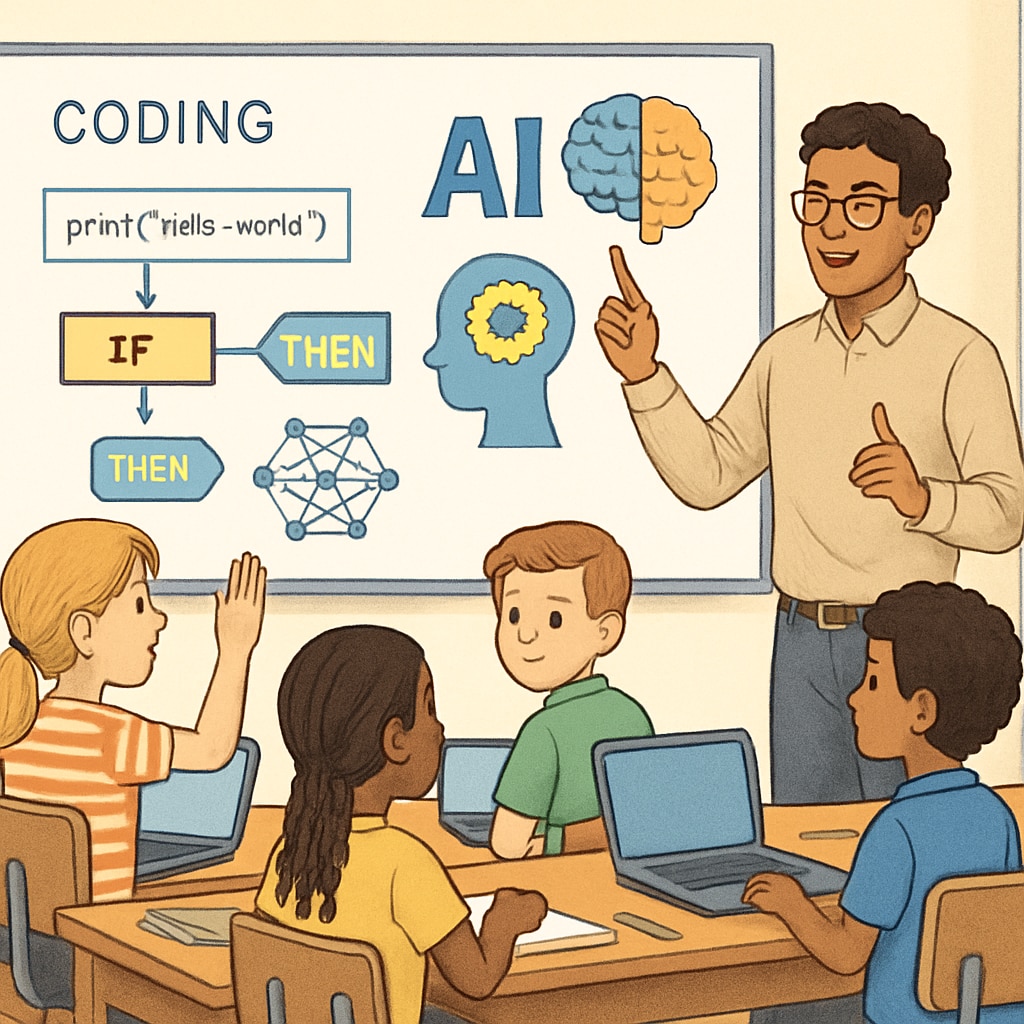The rapid development of artificial intelligence (AI) has sparked debates about its impact on higher education and career prospects. As AI continues to automate tasks and create new industries, the traditional roadmap of education leading to stable employment is becoming increasingly uncertain. This raises a critical question: How can K12 education equip students with the skills they need to thrive in an unpredictable, AI-dominated future?
Rethinking Education in the Age of Artificial Intelligence
AI has already begun to disrupt higher education and the job market. Universities are grappling with the need to update curricula to include AI-related subjects such as data science, machine learning, and ethical considerations in technology. However, K12 education faces an even greater challenge: preparing students for jobs that may not yet exist.
To address this, K12 education must shift from a focus on rote learning and standardized tests to a curriculum that emphasizes adaptability, creativity, and problem-solving skills. These are the abilities that will remain valuable even as AI takes over repetitive and analytical tasks. For example, students should engage in project-based learning that mirrors real-world challenges and fosters interdisciplinary thinking.

Core Skills for Navigating Future Career Prospects
Preparing students for an uncertain career landscape requires a fundamental shift in educational priorities. Rather than training for specific roles, K12 schools should focus on teaching broad, transferable skills. These include:
- Critical Thinking: AI can process data, but humans excel at asking the right questions and evaluating information critically.
- Emotional Intelligence: Jobs that require empathy, teamwork, and leadership are less likely to be automated.
- Digital Literacy: Understanding how AI works and its limitations will be essential for navigating a tech-driven world.
- Adaptability: The ability to learn new skills and pivot in response to changes will be a cornerstone of career resilience.
Moreover, interdisciplinary education should be encouraged. For example, combining arts and technology can help students develop both creative and technical skills, paving the way for innovative solutions in emerging fields.
The Role of Educators and Policymakers
Teachers and policymakers play a pivotal role in shaping K12 education to meet the demands of the AI era. Educators need ongoing training to integrate AI-related topics and teaching methods into their classrooms. For instance, introducing coding and computational thinking at an early age can build a strong foundation for understanding AI technologies.
Policymakers, on the other hand, must ensure that education systems are adequately funded and equipped to implement these changes. Public-private partnerships can also be leveraged to provide resources, such as AI labs and mentorship programs, that enrich the learning experience.

Addressing Educational Inequities in the AI Era
While reimagining K12 education is crucial, it’s equally important to address the digital divide. Not all students have equal access to technology, which could exacerbate educational inequities. Schools in underserved areas must receive support to provide students with the tools and internet access they need to succeed in an AI-driven world.
In addition, inclusive curricula should be developed to ensure that students from diverse backgrounds see themselves represented in the fields of technology and innovation. This can inspire a broader range of students to pursue careers in AI-related domains.
Looking Ahead: A Collaborative Effort
The integration of AI into society will only accelerate, making it imperative for K12 education to adapt. This transformation requires collaboration among educators, policymakers, parents, and industry leaders. By focusing on adaptability, critical thinking, and emotional intelligence, education systems can prepare students not just for the jobs of tomorrow, but for a lifetime of learning and growth.
As AI continues to reshape higher education and career prospects, the role of K12 education in laying a strong foundation has never been more vital. The future may be uncertain, but with the right strategies, we can equip the next generation to navigate it with confidence.
Readability guidance: This article uses short paragraphs and lists to enhance readability. Passive voice and long sentences are minimized, and transitions such as “however,” “in addition,” and “for example” are used to maintain a logical flow.


